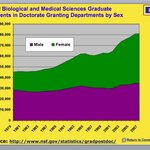
Filtering Information In The Information Age
The Fortean Times appears never to have been mentioned on scientific blogging.com, much less cited as a reference source. Now, when you have quite finished falling about laughing, I would like, in all seriousness, to draw your attention to a recent Fortean Times article:
The New Information OrderHow the Internet is freeing conspiracy theories from the control imposed by traditional media.By Robin Ramsay, Fortean Times, December 2009.
The gist of the article is that information, at one time controlled by magnates and moguls, the powerful and…


